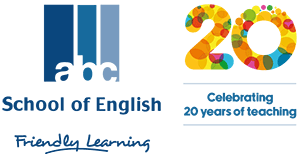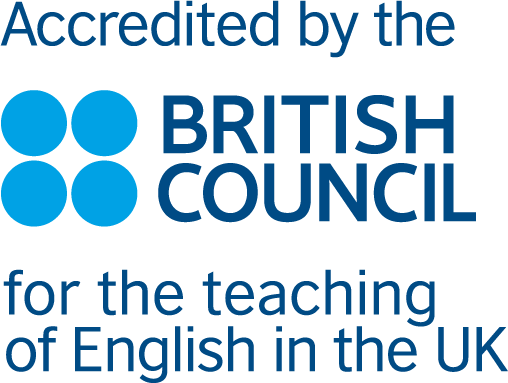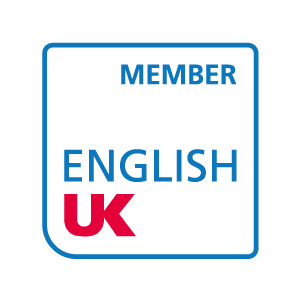
General English
Overview
Our General English courses are intended for students with an intermediate, upper intermediate or advanced level of English (CEFR B1/B2/C1). The courses focus on grammar, reading, writing and listening skills, expanding vocabulary, phrasal verbs and idioms.
General English courses are intended for anyone interested in learning the English language in order to communicate more effectively in everyday life.
Our year-round courses will help you to achieve your academic, personal and professional goals. Whether you want to take further studies, live in an English speaking country or improve your career opportunities, we have the right course for you.
Courses focus on
- grammar
- reading
- writing skills
- listening skills
- speaking and fluency skills
- expanding vocabulary and idioms
Entry requirements
You will be asked to take a pre-test to join these courses. The courses are based on 15 lessons per week, including a 15 minute break. We offer one day of free trial lessons. We do not offer free trial lessons during July and August.
Book your free trial lessons now: info@abcschool.co.uk
Progress and testing
- Regular homework
- Follow your progress with weekly tests
- Tutorials, one to one meetings with your teacher
- Students' reports
Certificate
At the end of the course you will receive an accredited ABC School of English certificate documenting your level of English and attendance.
| General English | |
|---|---|
| Full-time | From beginner to advanced level |
| Course Level | CEFR A1/A2/B1/B2/C1 |
| Start Date | Anytime |
| Maximum class | 14 students, average 8 to 10 |
| Time | Check with the school |
| Course length | Flexible, from 1 week to 36 |
| Minimum age | 16 |
| Suitable for | All students and professionals |
| Cost | from £199 per week |
Common European Framework – CEFR
| CEFR | LEVELS | ENGLISH CAMBRIDGE CERTIFICATES |
|---|---|---|
| A1 | Beginner | A2 Key |
| A2 | Elementary | A2 Key |
| B1 | Intermediate | B1 Preliminary |
| B2 | Upper intermediate | B2 First |
| C1 | Advanced | C1 Advanced |
| C2 | Very Advanced | C2 Proficiency |
The CEFR describes what a learner is supposed to be able to do in reading, listening, speaking and writing at each level.
| Level | Description |
|---|---|
| A1 | Can understand and use familiar everyday expressions and very basic phrases aimed at the satisfaction of needs of a concrete type. Can introduce him/herself and others and can ask and answer questions about personal details such as where he/she lives, people he/she knows and things he/she has. Can interact in a simple way provided the other person talks slowly and clearly and is prepared to help. |
| A2 | Can understand sentences and frequently used expressions related to areas of most immediate relevance (e.g. very basic personal and family information, shopping, local geography, employment). Can communicate in simple and routine tasks requiring a simple and direct exchange of information on familiar and routine matters. Can describe in simple terms aspects of his/her background, immediate environment and matters in areas of immediate need. |
| B1 | Can understand the main points of clear standard input on familiar matters regularly encountered in work, school, leisure, etc. Can deal with most situations likely to arise whilst travelling in an area where the language is spoken. Can produce simple connected text on topics which are familiar or of personal interest. Can describe experiences and events, dreams, hopes & ambitions and briefly give reasons and explanations for opinions and plans. |
| B2 | Can understand the main ideas of complex text on both concrete and abstract topics, including technical discussions in his/her field of specialisation. Can interact with a degree of fluency and spontaneity that makes regular interaction with native speakers quite possible without strain for either party. Can produce clear, detailed text on a wide range of subjects and explain a viewpoint on a topical issue giving the advantages and disadvantages of various options. |
| C1 | Can understand a wide range of demanding, longer texts, and recognise implicit meaning. Can express him/herself fluently and spontaneously without much obvious searching for expressions. Can use language flexibly and effectively for social, academic and professional purposes. Can produce clear, well-structured, detailed text on complex subjects, showing controlled use of organisational patterns, connectors and cohesive devices. |
| C2 | Can understand with ease virtually everything heard or read. Can summarise information from different spoken and written sources, reconstructing arguments and accounts in a coherent presentation. Can express him/herself spontaneously, very fluently and precisely, differentiating finer shades of meaning even in the most complex situations. |




